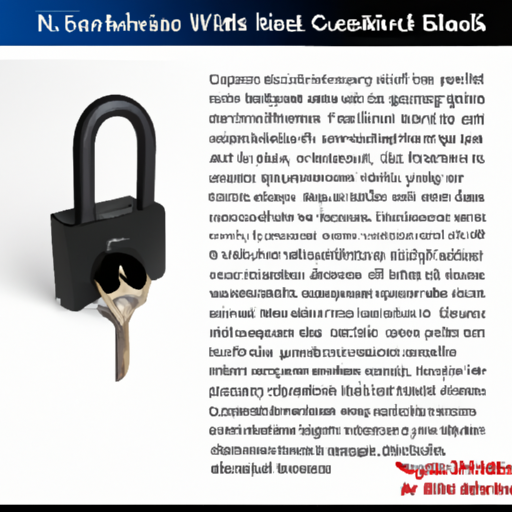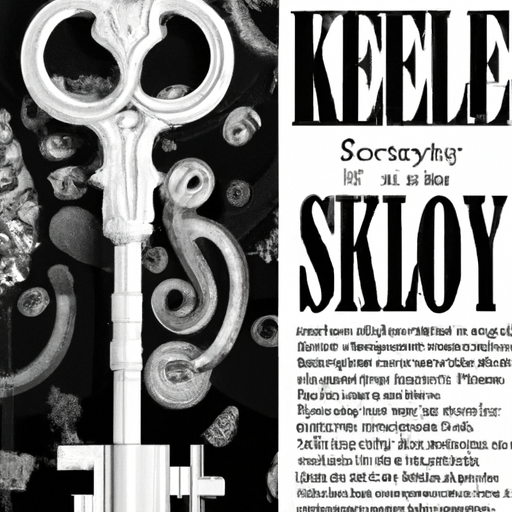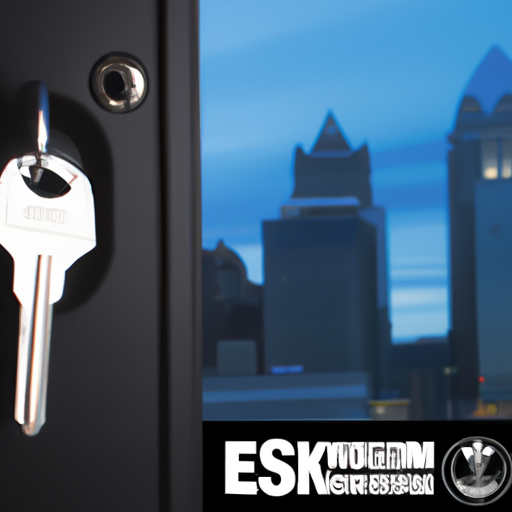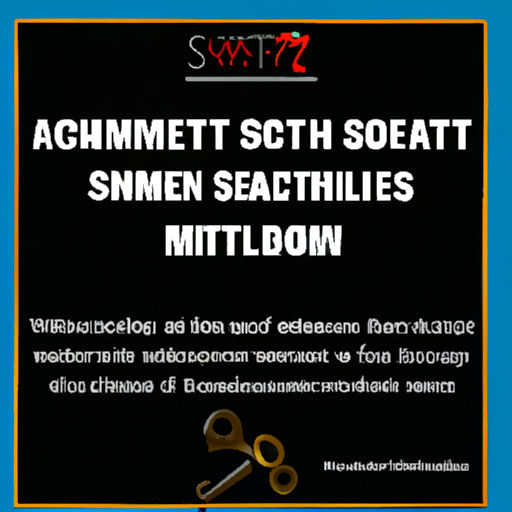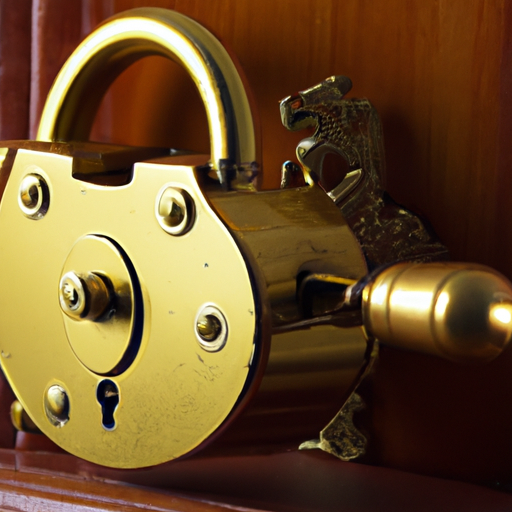
In this article, we will explore the fascinating world of antique locks and whether locksmiths have the expertise to open them. You will discover the unique challenges that antique locks present and how locksmiths can use their skills and knowledge to unlock these intricate pieces of history. So if you own an antique lock that needs to be opened or you are simply curious about this topic, keep reading to find out more!
The short answer is yes, locksmiths can open antique locks! However, it’s important to note that opening an antique lock is not always a straightforward task. Antique locks often have complex mechanisms and intricate designs that require specialized knowledge and skills to navigate. Locksmiths who specialize in antique locks have taken the time to study and understand these unique mechanisms, allowing them to carefully unlock and preserve these valuable pieces of history. So whether you have an antique lock that has been in the family for generations, or you stumbled upon one at a flea market, a skilled locksmith can help you unlock the secrets within!
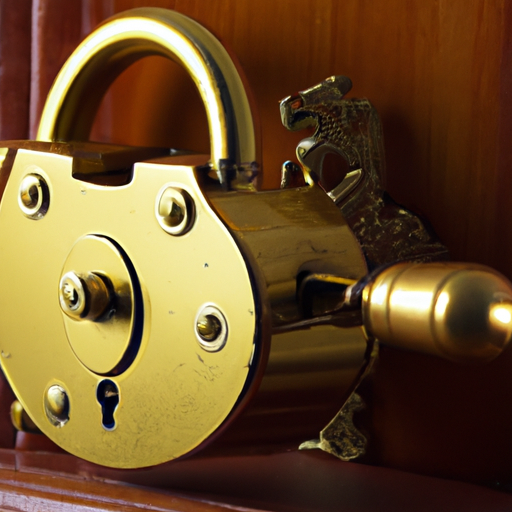
The History of Antique Locks
Antique locks have a rich history that spans centuries. They were first developed in ancient civilizations as a means of securing valuables and property. These early locks were primitive compared to the locks we are familiar with today. Ancient locksmiths used simple techniques and tools to create and open these early locks.
Ancient Locksmithing Techniques
In ancient times, locks were primarily made of wood or metal and were operated using a key or a combination of keys. Ancient locksmiths were skilled craftsmen who would meticulously shape and carve the components of the lock to create a working mechanism. They would then create a key that fit perfectly within the lock’s mechanism to open it.
Evolution of Locks in Different Time Periods
As time went on, locks evolved and became more sophisticated. During the Middle Ages, locksmiths began using iron and other metals to create more secure locks. The use of intricate designs and complex mechanisms became more prevalent as locksmiths sought to improve the security features of their locks.
In the 18th and 19th centuries, advancements in technology led to the invention of more complex locking mechanisms. This period saw the introduction of key-operated lever locks, combination locks, and padlocks. Locksmiths played a crucial role in the development of these new types of locks, using their expertise to design and build them.
Distinct Characteristics of Antique Locks
Antique locks have several distinct characteristics that set them apart from modern locks. Firstly, they often have intricate and ornate designs, reflecting the craftsmanship of the locksmiths who created them. Antique locks also tend to be larger and heavier than modern locks, as they were made using thicker and more durable materials.
Additionally, antique locks may have unique keyways and mechanisms that are specific to their time period. Locksmiths who work with antique locks need to have a deep understanding of these various mechanisms in order to effectively open and manipulate them.
Skills Required for Locksmithing
Opening antique locks requires a specific set of skills and knowledge. Locksmiths who specialize in working with antique locks need to have a thorough understanding of mechanical systems, as well as knowledge of lock components and mechanisms.
Understanding of Mechanical Systems
Antique locks are mechanical devices that rely on precise interactions between various components in order to function properly. A locksmith who works with antique locks needs to have a deep understanding of how these mechanical systems work and how to manipulate them without causing damage.
Knowledge of Lock Components and Mechanisms
Antique locks often have unique components and mechanisms that are specific to their time period. A locksmith who specializes in opening antique locks must be familiar with these components and mechanisms in order to effectively open and manipulate the locks. This requires a keen eye for detail and the ability to quickly identify and understand the inner workings of different types of locks.
Expertise in Lock Picking and Key Cutting
Locksmiths who work with antique locks must be skilled in the art of lock picking. This involves using specialized tools and techniques to manipulate the lock’s mechanism and successfully open it without the original key. Additionally, locksmiths may need to create new keys for antique locks through the process of key cutting. This requires precision and attention to detail to ensure that the new key fits perfectly within the lock.
Challenges in Opening Antique Locks
Opening antique locks comes with its own set of challenges. Locksmiths who specialize in working with antique locks must be prepared to face these challenges and find creative solutions.
Limited Availability of Replacement Parts
One challenge in opening antique locks is the limited availability of replacement parts. Many locks from previous centuries are no longer in production, which means that finding replacement parts can be difficult. Locksmiths may need to source or custom-make replacement parts in order to repair or restore antique locks.
Complexity and Diversity of Lock Designs
Antique locks come in a wide variety of designs, each with its own unique mechanism and components. Locksmiths who work with antique locks need to be familiar with the different types of locks and their specific designs in order to effectively open them. This requires a high level of expertise and experience in working with a wide range of lock designs.
Potential Damage to Fragile Antique Locks
Another challenge in opening antique locks is the potential for damage to fragile locks. Antique locks are often made using delicate materials that can easily be damaged if handled improperly. Locksmiths must use extreme caution and precision when working with antique locks to avoid causing any damage.
Specialized Tools for Opening Antique Locks
Locksmiths who work with antique locks rely on a variety of specialized tools to effectively open these locks. These tools are specifically designed to manipulate the lock’s mechanism without causing damage.
Skeleton Keys and Master Keys
Skeleton keys and master keys are common tools used by locksmiths to open antique locks. These keys are designed to fit a wide variety of locks, allowing locksmiths to quickly and easily open them without the need for individual keys.
Lock Picking Tools and Techniques
Locksmiths may also use lock picking tools and techniques to open antique locks. These tools, such as picks and tension wrenches, allow locksmiths to manipulate the lock’s pins or levers and successfully open the lock without the original key.
Safe Manipulation Devices
For antique locks that are part of a larger safe or vault system, locksmiths may use specialized safe manipulation devices to open them. These devices are designed to manipulate the combination or electronic locking mechanism of the safe, allowing the locksmith to gain access without causing damage.
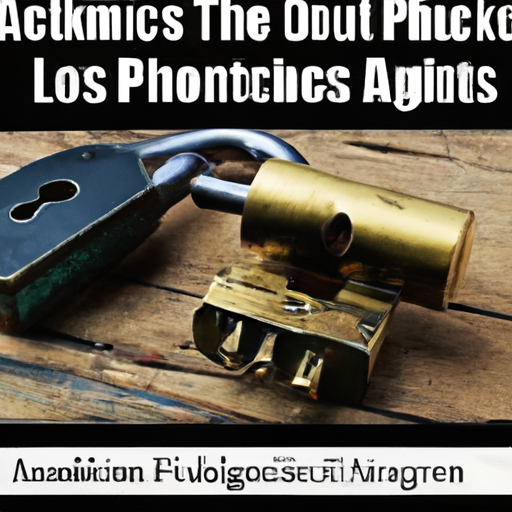
Methods Used by Locksmiths to Open Antique Locks
Locksmiths rely on a combination of techniques and methods to successfully open antique locks. These methods require a deep understanding of the lock’s mechanism and components, as well as a high level of skill and precision.
Analyzing Lock Mechanisms and Components
Before attempting to open an antique lock, a locksmith will carefully analyze its mechanism and components. This involves identifying the type of lock and its specific design, as well as understanding how the various components interact with each other.
Utilizing Specialized Locksmithing Techniques
Locksmiths who work with antique locks have a wide range of specialized locksmithing techniques at their disposal. These techniques may include lock picking, impressioning, decoding, and manipulation. Each technique requires a unique set of skills and tools to effectively open the lock without causing any damage.
Disassembling and Reassembling Locks
In some cases, locksmiths may need to disassemble the lock in order to gain access or repair damaged components. This requires a high level of expertise and precision to ensure that the lock can be reassembled correctly without causing any damage.
Importance of Preservation and Restoration
Preserving and restoring antique locks requires a delicate balance between opening the lock and conserving its original condition. Locksmiths who work with antique locks must understand the importance of preserving the authenticity and integrity of these historical artifacts.
Balancing Lock Opening and Conservation
When opening an antique lock, locksmiths must carefully balance the need to gain access with the preservation of the lock’s original condition. This requires a high level of skill and expertise to ensure that the lock is opened without causing any damage or altering its appearance.
Careful Handling of Antique Locks
Antique locks are often delicate and fragile, requiring careful handling to protect them from damage. Locksmiths must take great care when working with antique locks to ensure that they are not dropped, scratched, or otherwise mishandled.
Cleaning and Repairing Damaged Locks
In addition to opening antique locks, locksmiths may also offer cleaning and repair services for damaged locks. This may involve replacing broken components, lubricating moving parts, or cleaning away dirt and debris to restore the lock to its original functionality.
Availability of Specialized Locksmiths
Locksmiths who specialize in working with antique locks can be found in various locations. These locksmiths have the skills and expertise necessary to open and repair antique locks with care and precision.
Training and Certification in Antique Locksmithing
Locksmiths who work with antique locks often undergo specialized training and certification to ensure that they have the necessary skills and knowledge. This training may include courses on historical lock types, lock identification, and various locksmithing techniques specific to opening and repairing antique locks.
Professional Associations and Networks
Locksmiths who specialize in working with antique locks may also belong to professional associations or networks. These organizations provide locksmiths with opportunities for continued education, networking, and access to resources and information related to antique locksmithing.
Finding Expert Locksmiths in Your Area
If you have an antique lock that needs to be opened or repaired, finding an expert locksmith in your area is crucial. You can start by searching online or asking for recommendations from local historical societies or antique dealers. It is important to choose a locksmith who has experience working with antique locks and can provide references or examples of their previous work.
Benefits of Hiring a Professional Locksmith
There are several benefits to hiring a professional locksmith with expertise in opening antique locks.
Preserving the Authenticity of Antique Locks
By hiring a professional locksmith, you can ensure that your antique lock is opened with care and precision, preserving its authenticity and historical value. Professional locksmiths understand the importance of handling antique locks delicately and are skilled in opening them without causing any damage.
Ensuring Proper and Non-Destructive Opening
Professional locksmiths have the knowledge and tools necessary to open antique locks properly and without causing any damage. They have spent years honing their skills and understanding the inner workings of various types of locks. By hiring a professional locksmith, you can have peace of mind knowing that your antique lock will be opened safely and efficiently.
Obtaining Valuable Advice and Recommendations
In addition to opening antique locks, professional locksmiths can provide valuable advice and recommendations for preserving and maintaining your antique lock. They can offer guidance on proper storage, cleaning, and repair techniques to ensure that your lock remains in good condition for years to come.
Ethical Considerations in Locksmithing
Locksmiths who work with antique locks must adhere to a set of ethical considerations to protect the rights and privacy of their clients.
Respecting the Owner’s Property Rights
Locksmiths must always respect the owner’s property rights and operate within the confines of the law. They should only open locks with the owner’s permission and ensure that the lock is returned to its original condition after opening.
Adhering to Legal and Regulatory Standards
Locksmiths must also adhere to legal and regulatory standards in their jurisdiction. This includes obtaining the necessary licenses and permits, as well as complying with any laws or regulations related to the opening and handling of antique locks.
Maintaining Client Confidentiality
Locksmiths have a duty to maintain client confidentiality and ensure that any personal or sensitive information is kept secure. This includes protecting the client’s property and privacy while working with their antique lock.
Conclusion
Locksmiths with the right skills and expertise can indeed open antique locks. These skilled professionals play a vital role in preserving and restoring antique locks, ensuring that these historical artifacts can be enjoyed for generations to come. By hiring a professional locksmith, you can trust that your antique lock will be opened with care and precision, preserving its authenticity and historical value. So the next time you come across an antique lock that needs to be opened or repaired, don’t hesitate to seek the expertise of a professional locksmith.
